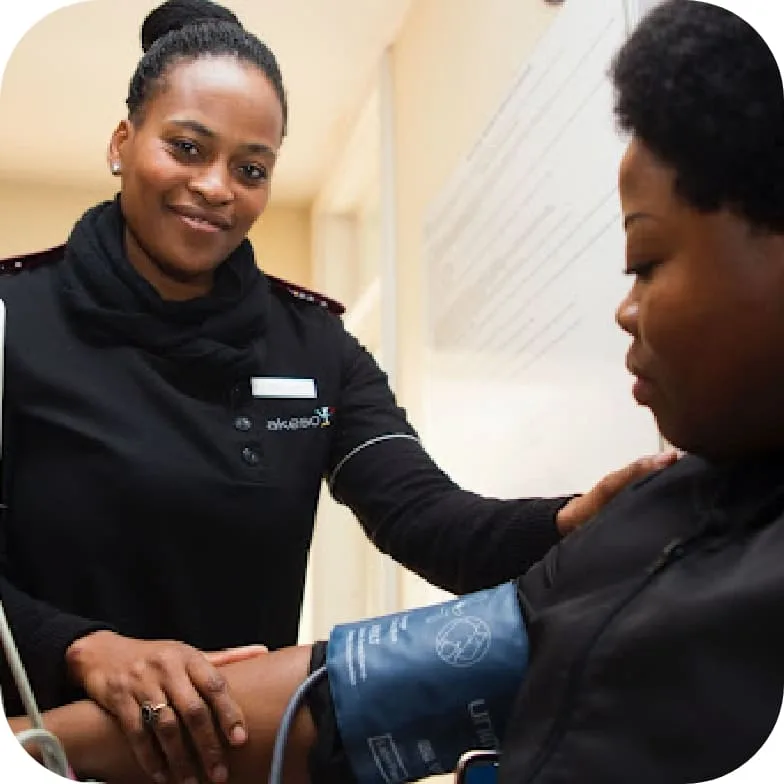Special Interest Mobile Healthcare: Adult Primary

Adult Primary mobile healthcare clinics provide care to adult populations with significant access to health services. They work to prevent illnesses, screen for disease and provide access to other resources that impact an individual’s well-being.
Goals
- Provide access to healthcare for adults who do not have a primary care doctor or insurance to cover medical expenses.
- Decrease ER visits.
- Prevent and/or monitor illnesses like diabetes and hypertension, and screen for diseases such as cancer and heart disease.
- Establish continuity of care.
Considerations
Trust: As one practitioner said, “Many people who rely on mobile clinics are used to being neglected, ignored or discriminated against.” When an offer sounds too good to be true—like free health care—it can be hard to trust those making it. So it’s crucial to build trust within your population. Before starting, one mobile program created a survey in the neighborhoods they wanted to serve, and hired those who live there to conduct it. They gave a $30 gift card to participants, and gained important information about demographics, household composition, illnesses, etc. They also targeted local stakeholders—e.g., clergy, school principals and business proprietors—and asked them to partner with the clinic.
Location: Along the lines of building trust, if you say you will be in a location you must show up regularly, ideally with the same staff and doctor at that location. It’s also important to be in areas that are accessible and near public transportation. One mobile program parks near churches, community centers and a library.
Type of treatment: This ranges depending upon the clinic and goals—some are intended to get people connected to a permanent medical home and some become that home—but is generally focused on comprehensive exams/physicals that monitor vitals and screen for disease. Additionally, some programs do well-woman exams that include breast exams and pap smears. Because social determinants play a large role in health, they should also be taken into consideration when delivering care.
Partner agencies: Because of the aforementioned social determinants, it’s important to have connections to places like food banks, child care, schools, and organizations that help those with disabilities and the like. One mobile program partners with law students to help with immigration and housing issues. For example, this organization helped one woman who couldn’t pay her water bill—and subsequently stopped taking her medicine—to work out a payment plan with the utility.
Specialty referrals: Many mobile clinics are connected to health centers where referrals can easily be arranged. If not, be sure to align with specialty clinics or doctors who can see patients in need of more than a primary care physician.
Behavioral health: There’s a high incidence of depression, bipolar disorder and other mental health challenges in this population, so it may be worth having a psychiatrist or therapist come on a regularly scheduled day.
Costs: Aside from the mobile vehicle, costs include salaries, medical supplies and initial investments in vital sign and blood drawing equipment, an EKG machine and other medical supplies. Include a vehicle-repair budget line as well.
Medications: Either have medications and vaccines on hand or partner with a nearby pharmacy that can provide medications at low or no cost. One mobile program uses an app called GoodRx, which locates the cheapest prescription in a zip code. Americares, which has a surplus warehouse, is also another good resource; it sends out a list of surplus medications and medical supplies, which varies from month to month.
Languages: Be sure that there is someone on staff who speaks the languages of the population.
Staffing: To maximize staffing in a small space, one mobile program hires EMTs as drivers, since they are used to driving large vehicles and are great medical assistants. They can also serve as security if needed. Other staff include a doctor or nurse practitioner, nurse or case manager, and possibly a social worker.
Storytelling: To keep spirits up, one mobile program has everyone share a patient story at the regular staff meetings so management and non-clinic staff remember their mission and purpose, and can share these important stories with funders and the like.
Resources
- Mobile Health Map
- The scope and impact of mobile health clinics in the United States: a literature review
- Neighborhood Socioeconomic Status and Primary Health Care: Usual Points of Access and Temporal Trends in a Major US Urban Area
- Sustaining High-Quality Primary Care in Low-Income Communities
Next Steps
- Become a member of Mobile Healthcare Association
- Review our start-up resources, some for members only.